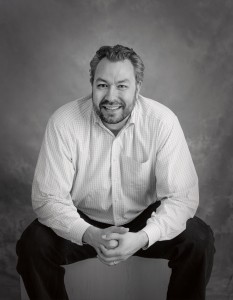CSUN Amado Lecture to Explore Forgiving the Unforgivable
How does one forgive the unforgiveable and heal what seems unhealable?
These questions and others will be explored at California State University, Northridge’s fifth annual Maurice Amado Foundation Lecture in Jewish Ethics on Wednesday, March 14. The lecture — titled “Teshuvah for Genocide? In/Justice, Reconciliation, and Indigenous Peoples in Australia (and the United States)” — is scheduled to take place at 7:30 p.m. at Valley Beth Shalom Synagogue, located at 15739 Ventura Blvd. in Encino.

Aaron Hahn Tapper
Respected Jewish ethics scholar Aaron J. Hahn Tapper will use the example of Australia’s 2008 apology to its indigenous people for past government policies that forced child removal and indigenous assimilation to examine the issues surrounding reconciliation and forgiveness.
Jennifer Thompson, CSUN’s Maurice Amado Assistant Professor of Applied Jewish Ethics and Civic Engagement, said Hahn Tapper will draw on his extensive research and practice in conflict transformation for his presentation.
“Our world has a lot of intense conflict now, and we need better frameworks for thinking about it and resolving it,” she said. “I hope this lecture will help us use the tools of Jewish ethics to do so.”
As his first official act as Australian Prime Minister, Kevin Rudd formally apologized to indigenous Australians in 2008, launching an ambitious process of reconciliation and forgiveness. The apology raised a number of questions about its success, including its meaning to indigenous and non-indigenous Australians. It also prompted speculation about whether other places, such as the United States, could engage in restorative justice as well.
“Restorative justice is a way of making peace so that the people who’ve been hurt feel closer to whole,” Thompson said. “The Jewish idea of teshuvah, which means repentance through returning to the right path, offers an important way to think about trying to make amends with someone you’ve hurt — even on the scale of representing a people who’ve committed genocide against other people.”
Hahn Tapper is the Mae and Benjamin Swig Professor of Jewish Studies, chair of the Department of Theology and Religious Studies, and director of the Swig Program in Jewish Studies and Social Justice at the University of San Francisco. An educator for more than two decades, his primary academic interest is in the intersection between identity formation, social justice and marginalized groups. He is the author of “Judaisms: A Twenty-First-Century Introduction to Jews and Jewish Identities,” which explores what it means to be a Jew.
In 2003, Hahn Tapper founded Abraham’s Vision — a conflict transformation organization that ran educational programs within and between the Muslim, Jewish, Palestinian and Israeli communities — for whom he served as co-executive director through May 2013. Currently, he is the executive director of the Center for Transformative Education, an educational initiative aiming to create empowering educational programs to transform societies and help them reach their potential. He co-founded the center in 2008.
The Amado Lectures are part of the mission of CSUN’s Jewish Studies Interdisciplinary Program endowed professorship, which was created with the understanding that whoever holds the position would teach and engage in scholarship drawn from the heritage of Sephardic, Ashkenazi and other Jewish traditions.
CSUN offers both a major and minor in Jewish studies. The program explores the rich heritage of the Jewish people. Using the methods of different academic disciplines, it examines the experiences of Jews in the many lands in which they have lived over the past 4,000 years, as well as contemporary Jewish life in Israel, Europe, Asia and the Americas.
The lecture is free and open to the public, but seating is limited. For more information or to RSVP, call (818) 677-4724 or email jewish.studies@csun.edu.

 experience
experience